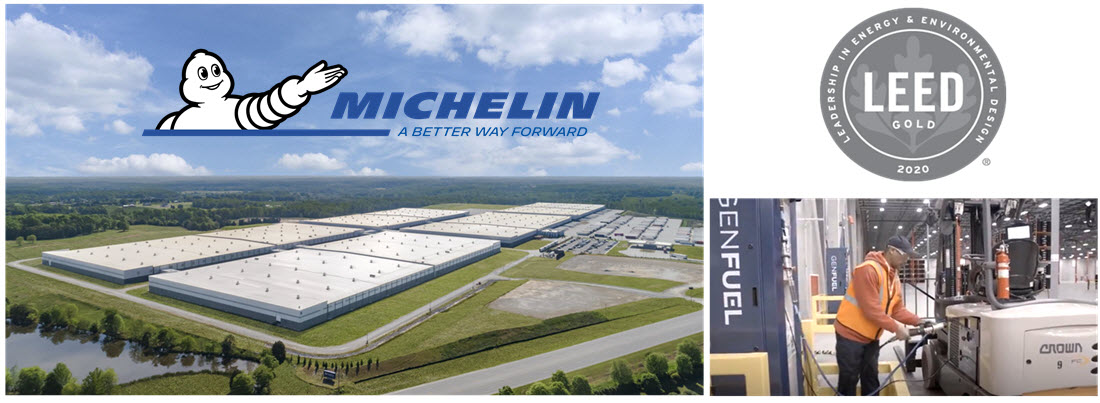
- First phase of new 3.3-million-square-foot facility achieves Gold ranking
- Michelin aims to be sustainable in all areas of its business
- Distribution center uses a zero-emission hydrogen fuel cell solution to power its material handling lift trucks.
Michelin North America has been awarded LEED Gold certification for Phase 1 of its southeast distribution center in Woodruff, South Carolina.
Michelin achieved LEED Gold certification for implementing practical and measurable strategies and solutions in areas including sustainable site development, water savings, energy efficiency, materials selection and indoor environmental quality. The distribution center uses a zero-emission hydrogen fuel cell solution to power its material handling lift trucks.
“Michelin is committed to being sustainable in all of our actions,” said Alexis Garcin, chairman and president of Michelin North America Inc. “In everything we do, we seek to balance and protect three critical areas: people, profit and planet. We operate through and for people; we are able to invest for the future due to our financial and operational performance; and we do all of this with a focus on protecting our environment and its natural resources. This certification is an affirmation of our efforts in these three areas.”
LEED (Leadership in Energy and Environmental Design), developed by the U.S. Green Building Council (USGBC), is the most widely used green building rating system in the world and an international symbol of excellence. Through design, construction and operations practices that improve environmental and human health, LEED-certified buildings are helping to make the world more sustainable.
“At Michelin, we are working to promote a low-carbon energy and mobility transition. To do this we must reduce carbon emissions from our industrial activities in absolute terms, targeting carbon neutrality by 2050. LEED certification helps move us toward this goal,” added Garcin.
According to the U.S. Energy Information Association, buildings account for almost 40% of national CO2 emissions. LEED-certified buildings have 34% lower CO2 emissions, consume 25% less energy and 11% less water, and have diverted more than 80 million tons of waste from landfills.
Since 2010, the Group has reduced the environmental impact of its sites by more than 50%.
Read the most up to date Fuel Cell and Hydrogen Industry news at FuelCellsWorks




